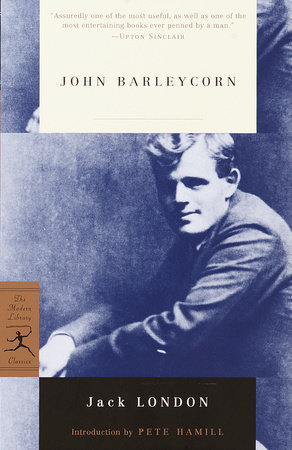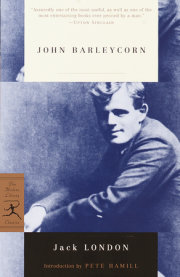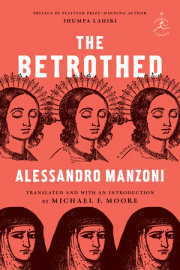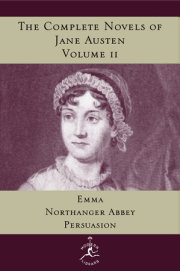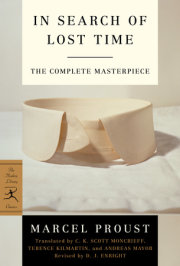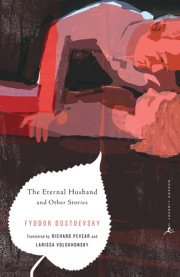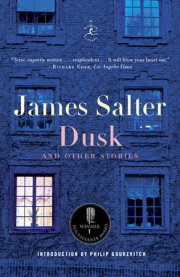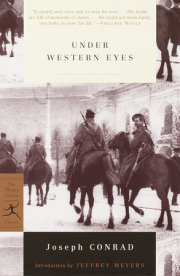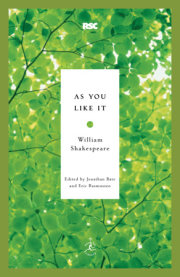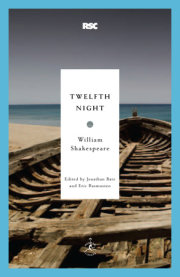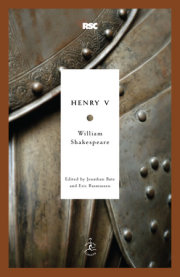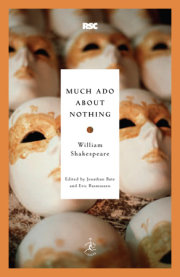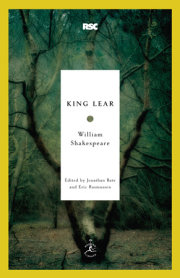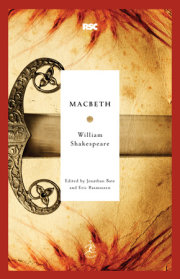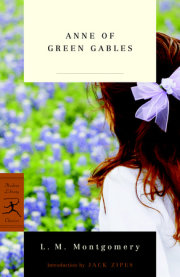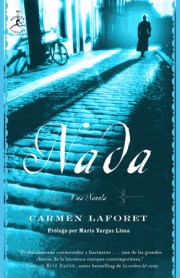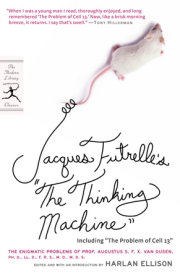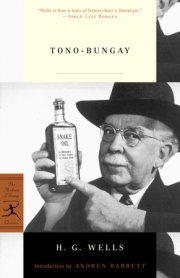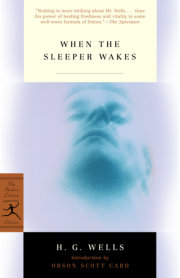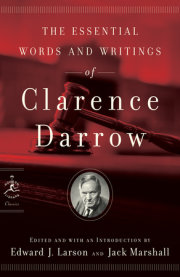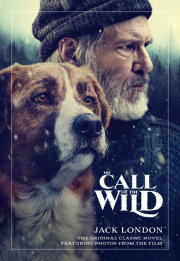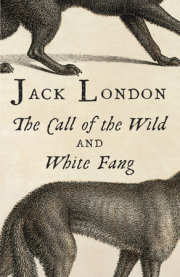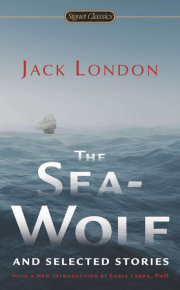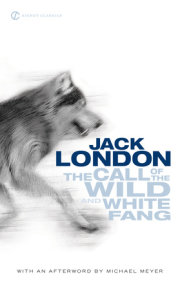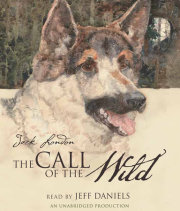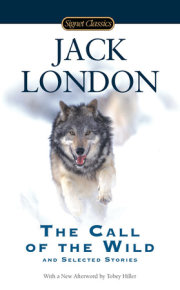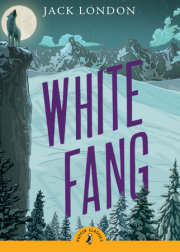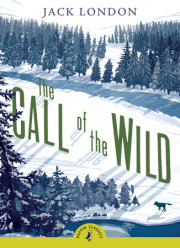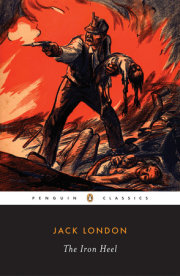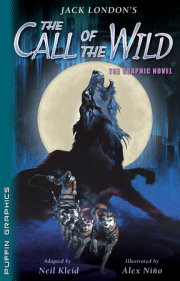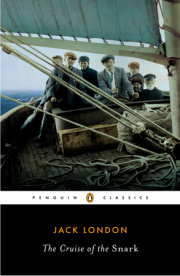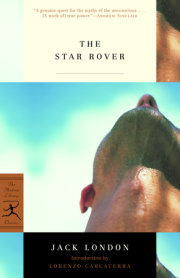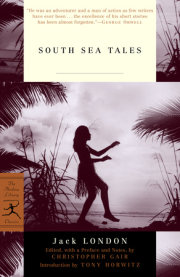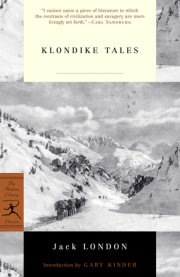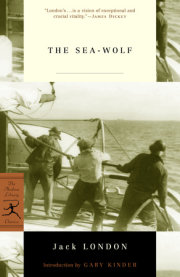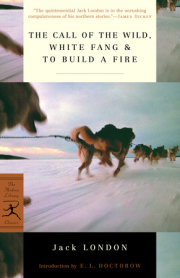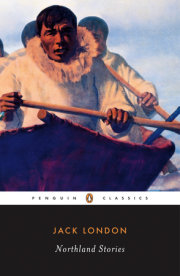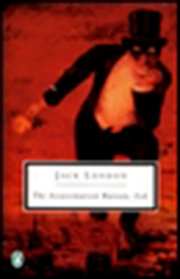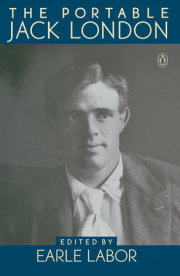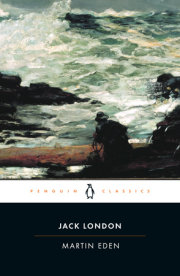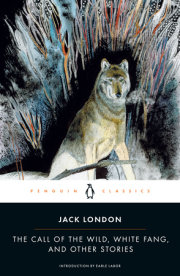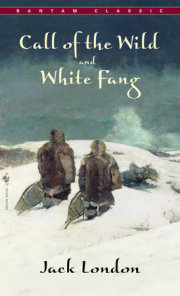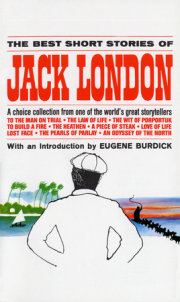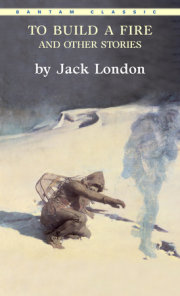Chapter IIt all came to me one election day. It was on a warm California afternoon, and I had ridden down into the Valley of the Moon from the ranch to the little village to vote yes and no to a host of proposed amendments to the Constitution of the State of California. Because of the warmth of the day I had had several drinks before casting my ballot, and divers drinks after casting it. Then I had ridden up through the vine-clad hills and rolling pastures of the ranch and arrived at the farmhouse in time for another drink and supper.
“How did you vote on the suffrage amendment?” Charmian asked.
“I voted for it.”
She uttered an exclamation of surprise. For be it known, in my younger days, despite my ardent democracy, I had been opposed to woman suffrage. In my later and more tolerant years I had been unenthusiastic in my acceptance of it as an inevitable social phenomenon.
“Now just why did you vote for it?” Charmian asked.
I answered. I answered at length. I answered indignantly. The more I answered, the more indignant I became. (No; I was not drunk. The horse I had ridden was well-named “The Outlaw.” I ’d like to see any drunken man ride her.)
And yet—how shall I say?—I was lighted up, I was feeling “good,” I was pleasantly jingled.
“When the women get the ballot, they will vote for prohibition,” I said. “It is the wives, and sisters, and mothers, and they only, who will drive the nails into the coffin of John Barleycorn—”
“But I thought you were a friend to John Barleycorn,” Charmian interpolated.
“I am. I was. I am not. I never am. I am never less his friend than when he is with me and when I seem most his friend. He is the king of liars. He is the frankest truth-sayer. He is the august companion with whom one walks with the gods. He is also in league with the Noseless One. His way leads to truth naked, and to death. He gives clear vision, and muddy dreams. He is the enemy of life, and the teacher of wisdom beyond life’s vision. He is a red-handed killer, and he slays youth.”
And Charmian looked at me, and I knew she wondered where I had got it.
I continued to talk. As I say, I was lighted up. In my brain every thought was at home. Every thought, in its little cell, crouched ready-dressed at the door, like prisoners at midnight waiting a jail-break. And every thought was a vision, bright- imaged, sharp-cut, unmistakable. My brain was illuminated by the clear, white light of alcohol. John Barleycorn was on a truth-telling rampage, giving away the choicest secrets on himself. And I was his spokesman. There moved the multitudes of memories of my past life, all orderly arranged like soldiers in some vast review. It was mine to pick and choose. I was a lord of thought, the master of my vocabulary and of the totality of my experience, unerringly capable of selecting my data and building my exposition. For so John Barleycorn tricks and lures, setting the maggots of intelligence gnawing, whispering his fatal intuitions of truth, flinging purple passages into the monotony of one’s days.
I outlined my life to Charmian, and expounded the make-up of my constitution. I was no hereditary alcoholic. I had been born with no organic, chemical predisposition toward alcohol. In this matter I was normal in my generation. Alcohol was an acquired taste. It had been painfully acquired. Alcohol had been a dreadfully repugnant thing—more nauseous than any physic. Even now I did not like the taste of it. I drank it only for its “kick.” And from the age of five to that of twenty-five, I had not learned to care for its kick. Twenty years of unwilling apprenticeship had been required to make my system rebelliously tolerant of alcohol, to make me, in the heart and the deeps of me, desirous of alcohol.
I sketched my first contacts with alcohol, told of my first intoxications and revulsions, and pointed out always the one thing that in the end had won me over—namely, the accessibility of alcohol. Not only had it always been accessible, but every interest of my developing life had drawn me to it. A newsboy on the streets, a sailor, a miner, a wanderer in far lands, always where men came together to exchange ideas, to laugh and boast and dare, to relax, to forget the dull toil of tiresome nights and days, always they came together over alcohol. The saloon was the place of congregation. Men gathered to it as primitive men gathered about the fire of the squatting-place or the fire at the mouth of the cave.
I reminded Charmian of the canoe-houses from which she had been barred in the South Pacific, where the kinky-haired cannibals escaped from their womenkind and feasted and drank by themselves, the sacred precincts taboo to women under pain of death. As a youth, by way of the saloon I had escaped from the narrowness of women’s influence into the wide free world of men. All ways led to the saloon. The thousand roads of romance and adventure drew together in the saloon, and thence led out and on over the world.
“The point is,” I concluded my sermon, “that it is the accessibility of alcohol that has given me my taste for alcohol. I did not care for it. I used to laugh at it. Yet here I am, at the last, possessed with the drinker’s desire. It took twenty years to implant that desire; and for ten years more that desire has grown. And the effect of satisfying that desire is anything but good. Temperamentally I am wholesome-hearted and merry. Yet when I walk with John Barleycorn I suffer all the damnation of intellectual pessimism.
“—But,” I hastened to add (I always hasten to add), “—John Barleycorn must have his due. He does tell the truth. That is the curse of it. The so-called truths of life are not true. They are the vital lies by which life lives, and John Barleycorn gives them the lie.”
“Which does not make toward life,” Charmian said.
“Very true,” I answered. “And that is the perfectest hell of it. John Barleycorn makes toward death. That is why I voted for the amendment to-day. I read back in my life and saw how the accessibility of alcohol had given me the taste for it. You see, comparatively few alcoholics are born in a generation. And by alcoholic I mean a man whose chemistry craves alcohol and drives him resistlessly to it. The great majority of habitual drinkers are born not only without desire for alcohol but with actual repugnance toward it. Not the first, nor the twentieth, nor the hundredth drink, succeeded in giving them the liking. But they learned, just as men learn to smoke; though it is far easier to learn to smoke than to learn to drink. They learned because alcohol was so accessible. The women know the game. They pay for it—the wives and sisters and mothers. And when they come to vote they will vote for prohibition. And the best of it is that there will be no hardship worked on the coming generation. Not having access to alcohol, not being predisposed toward alcohol, it will never miss alcohol. It will mean life more abundant for the manhood of the young boys born and growing up—ay, and life more abundant for the young girls born and growing up to share the lives of the young men.”
“Why not write all this up for the sake of the young men and women coming?” Charmian asked. “Why not write it so as to help the wives and sisters and mothers to the way they should vote?”
“The ‘Memoirs of an Alcoholic.’ ” I sneered—or, rather, John Barleycorn sneered; for he sat with me there at table in my pleasant, philanthropic jingle, and it is a trick of John Barleycorn to turn the smile to a sneer without an instant’s warning.
“No,” said Charmian, ignoring John Barleycorn’s roughness as so many women have learned to do. “You have shown yourself no alcoholic, no dipsomaniac, but merely an habitual drinker, one who has made John Barleycorn’s acquaintance through long years of rubbing shoulders with him. Write it up and call it ‘Alcoholic Memoirs.’ ”
Copyright © 2001 by Jack London. All rights reserved. No part of this excerpt may be reproduced or reprinted without permission in writing from the publisher.

